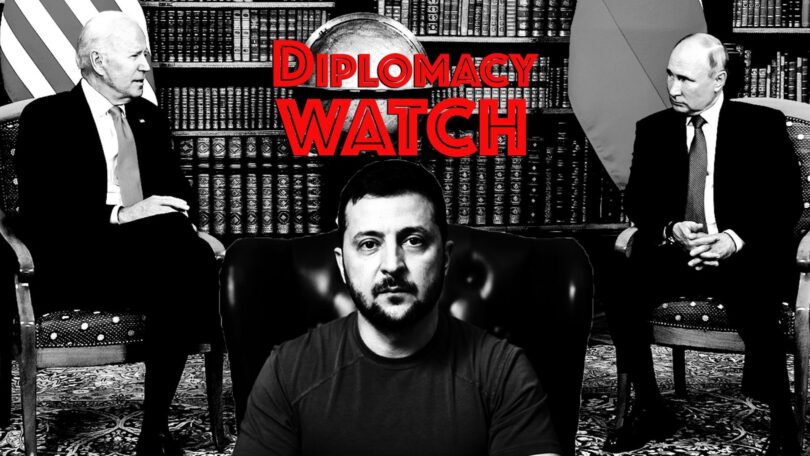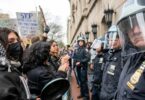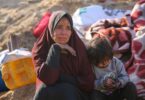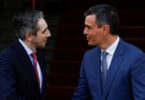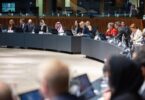Connor Echols
In a Monday phone call, Ukrainian President Volodymyr Zelensky asked for Indian Prime Minister Narendra Modi’s help in promoting Kyiv’s peace plan for the ongoing conflict with Russia.
The conversation came as India, which has dramatically expanded trade with Russia since the invasion, took over leadership of the G20. “It was on this platform that I announced the peace formula and now I count on India’s participation in its implementation,” Zelensky tweeted after the meeting.
For their part, Modi’s team said he “strongly reiterated his call for an immediate cessation of hostilities,” and emphasized the need for diplomacy in order to end the brutal war. New Delhi also declared its “support for any peace efforts” but stopped short of explicitly endorsing Zelensky’s proposal.
The call is the latest step in Ukraine’s rollout of its 10-point peace plan, which Kyiv says will be the center of a “peace summit” at some point in the next couple of months. Zelensky said last week that President Joe Biden agreed to support the proposal, though U.S. officials have yet to confirm that claim. Some notable demands include a full Russian withdrawal from Ukraine, including Crimea, and the creation of a special tribunal for Russian war crimes.
“The United Nations could be the best venue for holding this summit,” Kyiv’s foreign minister, Dmytro Kuleba, told the Associated Press. “This is really about bringing everyone on board.”
There is, however, one significant exception to the guest list. Per Kuleba, Russia can only attend the summit after facing prosecution for war crimes. “They can only be invited to this step in this way,” Kuleba said, adding that he is also working to expel Moscow from the United Nations.
Russia quickly rejected the plan and reiterated its demand that Kyiv accept Moscow’s annexation of Crimea and attempted seizure of large swathes of eastern Ukraine. “As for the duration of the conflict, the ball is on the side of the [Kyiv] regime and Washington that stands behind its back,” said Russian Foreign Minister Sergei Lavrov. “They may stop senseless resistance at any moment.”
The sharp differences between the warring parties suggest that the conflict will drag on well into the future, according to UN Secretary General Antonio Guterres.
“I do believe that the military confrontation will go on, and I think we’ll have still to wait for a moment in which serious negotiations for peace will be possible,” Guterres said.
In other diplomatic news related to the war in Ukraine:
— Russia announced Tuesday that it will not sell oil to countries that attempt to enforce a price cap agreed by Western countries, according to Al Jazeera. The decision sets Moscow up for a clash with the G7 and the European Union, both of which agreed to only purchase Russian at $60 per barrel — a significant drop from the current market price of $78 per barrel.
— In his Christmas homily, Pope Francis renewed his call for peace in Ukraine and lamented the impact the war has had on innocent people around the world, according to AP News. “Let us also see the faces of our Ukrainian brothers and sisters, who are experiencing this Christmas in the dark and cold, far from their homes due to the devastation caused by 10 months of war,” the pontiff said, noting that the conflict has put “entire peoples at risk of famine, especially in Afghanistan and in the countries of the Horn of Africa.”
— A top Putin aide visited the Zaporizhzhia nuclear power plant, which has faced months of intermittent shelling since Russian forces took control of it earlier this year, according to Reuters. The advisor “checked the safety of the facility and the working conditions of Rosatom employees,” according to a Russia-backed local leader.
— On Wednesday, French Defense Minister Sebastien Lecornu visited Kyiv and pledged to support Ukraine through weapons transfers and maintenance for French arms already in the country, according to Al Arabiya. “France has chosen several ways to help Ukraine,” Lecornu said, adding that “maintenance of what has already been given to Ukraine is just as important as the new equipment.” So far, France has lagged behind its European peers in providing aid to Ukraine. This high-level visit could be an effort to undercut accusations that Paris is not doing enough to support Kyiv’s war effort.

